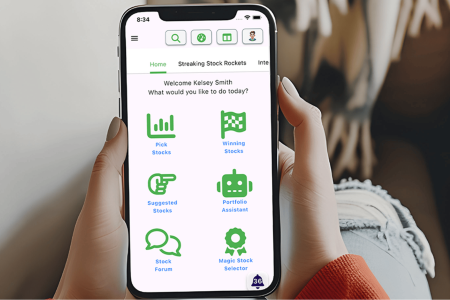China’s economy is facing a world of hurt. If policy makers don’t act aggressively to stem a downward spiral in consumer and business confidence, that pain could spread to the U.S. and the rest of the world.
As the world’s second-largest economy and the source of a third of global growth, turmoil in China certainly will spill over. The U.S. is less vulnerable than Europe, Asia, or commodity-producing emerging markets since it is primarily a consumer-driven economy and not as reliant on selling goods to China. But it isn’t immune—especially if Chinese policy makers fail to act more decisively to stabilize their economy soon.
That policy risk is growing as Beijing has stuck to a more targeted and gradual approach to stimulus even with an underwhelming recovery from three years of strict Covid restrictions hampered by beaten-up consumer and business sentiment and an ailing property sector. Youth unemployment hit a record 21% in June, and a spate of July data has disappointed, including continued declines in property prices in major cities.
The flailing property market is creating its own ripples with developer
Evergrande
filing for U.S. bankruptcy, and Country Garden, a property developer that survived the sector’s turmoil when policy makers deflated a housing bubble, missing bond payments. The troubles are hitting shadow banking, with investors saying they didn’t receive payments from investment products managed by Zhongrong International Trust.
Though investors are looking for broad-based measures China used in the past, such aggressive stimulus may not be forthcoming as China has shifted away from prioritizing economic growth to tackling longer term issues like its heavy debt load, an aging population and focus on national security and building self-reliance in critical technologies as geopolitical tensions flare, says Scheherazade Rehman, professor of international finance and business at George Washington University.
Chinese leader Xi Jinping is focused on diffusing financial risks from the loads of debt piled on local governments’ balance sheets, feeding his reluctance to return to debt-fueled infrastructure stimulus or measures that reinflate the property bubble. Policy makers are also wary about cutting interest rates too aggressively and sparking a disorderly currency devaluation, especially as they have already intervened to smooth out the decline in the renminbi against the dollar.
Given the policy bind, many economists see China headed for some version of a hard landing, potentially missing its already lowered expectation for economic growth this year of “around 5%.” Capital Economics economists see the risk of recession—less than 3% growth in China’s case—and expect second-half growth averaging only 3%, and that’s only if Beijing steps up stimulus.
“The longer this goes on, the harder it gets to revive consumers’ and businesses’ confidence,” says Philip Wool, global head of research at asset manager Rayliant. “In the absence of much more definitive stimulus, that only gets worse.”
Worse isn’t good for global growth. Earlier this summer, the International Monetary Fund warned that increased troubles in China could jeopardize its 3.5% global growth expectations for this year and next. Europe and commodity-producing emerging markets, like Brazil and Indonesia, that rely heavily on exports to China are especially vulnerable. But only 8% of U.S. exports go to China. Plus, the recent strength of the U.S. consumer and services sector also offers a buffer.
There will be fallout. Large multinational companies like
Caterpillar
(CAT) and DuPont have already warned of weakness from China. are already warning of pain, with Caterpillar and
DuPont
(DD) highlighting weakness. If consumers and companies in China curtail spending further, companies like
Apple
(AAPL) and
Nvidia
(NVDA) could also face pressure.
China has cut a key policy rate twice in the past three months and economists expect more cuts, which will likely pressure the yuan and boost the dollar. That stronger dollar could hurt U.S. exporters on the margin. While China’s economic troubles on their own are unlikely to scuttle the soft landing for the U.S. through traditional economic channels, economists caution that the U.S. isn’t in the clear. As other countries more reliant on China see weaker orders, their own demand for U.S. goods could slow—indirectly hitting U.S. companies.
But it’s the hit that could come from a turn in investor sentiment and a global market selloff that strategists worry about if China doesn’t get a handle on the economy soon. When China’s currency tumbled and its property market last struggled in 2015, the S&P 500 fell 20%, according to BCA strategist Arthur Budaghyan, who sees fallout for U.S. stocks even if China’s woes don’t spoil a soft landing.
“The data from China is very obscure so when you see something, you can’t be sure if it is the tip of the iceberg. If there are three or four more [stories about big Chinese companies under pressure], the market will connect the dots and say this is worse than we thought and reprice, even in the U.S.,” says Claudio Irigoyen,
Bank of America’s
head of global economics, who says a stock selloff could cool consumer demand in the U.S. “Can the U.S. continue booming with China going under? No.”
Eventually, strategists and economists expect China to take bolder measures. That could include increasing infrastructure spending, albeit not at the levels seen out of past crises, or more symbolic measures to give small businesses the green light to invest. They could also find new ways to incentivize Chinese households to dip into the savings they have been fattening up, perhaps by relaxing down payment restrictions further.
But Chinese policymakers may wait for more bad news, like still sharper declines in property prices or much weaker than anticipated third-quarter economic activity before pulling out bigger tools.
“Beijing is going to be crucial in rekindling optimism and getting China spending and investing again, and the sooner that happens, the better the prognosis for dodging a hard landing,” Wool says.
And while a hard landing on its own may not be enough to spoil its soft-landing chances, strategists note that other factors are at play. “Tremendous fiscal stimulus has masked the impact of what the Fed has done. We still haven’t seen the full impact of the Fed. What’s happening in China is just going to drive another nail into the weakest component of the U.S. economy: Manufacturing,” says David Rosenberg, founder and president of Rosenberg Research & Associates.
China’s slowdown is also drawing comparisons to Japan’s deflationary lost decades. While it’s too early to put China on this path, the view that deflationary winds coming from China could offset some of the inflationary pressures persistent in the U.S. could revive expectations the Federal Reserve could move sooner to cut rates.
One note of caution: While China’s slump could pressure goods prices, the Fed’s challenge is with sticky wage pressure in services. For that to abate, China’s economic troubles have to rattle U.S. consumers—feasible if China’s economic malaise deepens to the point it unsettles investors enough to spark a global selloff.
Write to Reshma Kapadia at [email protected]
Read the full article here









